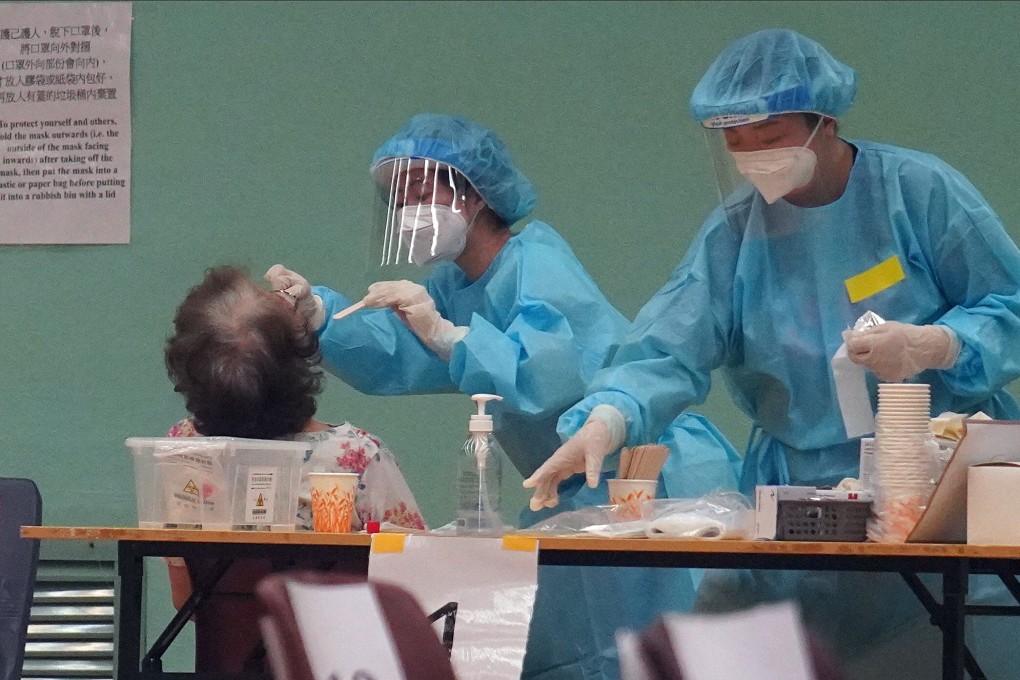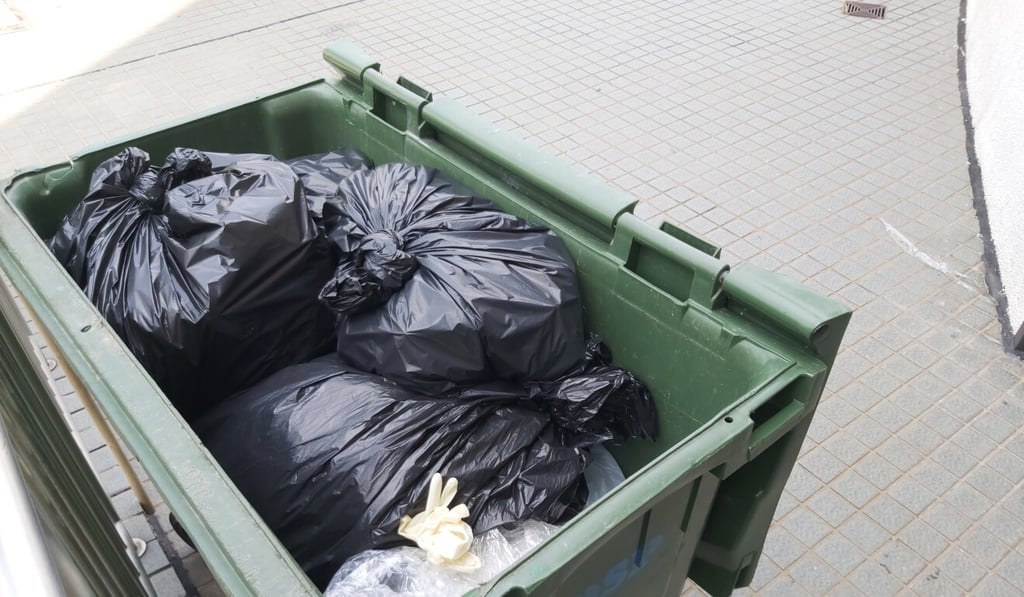Coronavirus: concerns mount over handling of waste at Hong Kong’s mass testing centres, as 152,000 more screened
- Experts say the rubbish generated by testing facilities should be treated as clinical waste, which comes with stricter disposal standards
- Authorities, however, insist the current protocols are sufficient to avoid cross-transmission

Appealing to citizens to take the test to track down invisible Covid-19 carriers, the government said about 798,000 people had registered for the programme as of 8pm. The free and voluntary scheme started on Tuesday and is expected to run for a week, but could be extended by one more. So far, a total of 278,000 people have been tested.
The government, meanwhile, stood its ground on Wednesday despite suggestions from medical experts that rubbish from the testing centres be treated as clinical waste, which requires more stringent disposal procedures and can only be handled by licensed trash collectors.
Citing advice from the Centre for Health Protection, a government spokesman said the waste from the testing locations was no different from household refuse.
He added that health authorities would constantly remind the heads of all the centres, as well as cleaning contractors, to adhere to guidelines requiring that diluted bleach be used to disinfect waste collection points, and that rubbish be wrapped properly in bags before it is thrown out. The waste must also be taken from the collection points to refuse transfer stations on a daily basis.
At the rear entrance of the Ma On Shan Sports Centre, which has been turned into a testing location, an apparently used medical glove was seen lying on top of a pile of rubbish bags in a roller bin on Wednesday morning as workers filed out one after another to dump more trash there.
